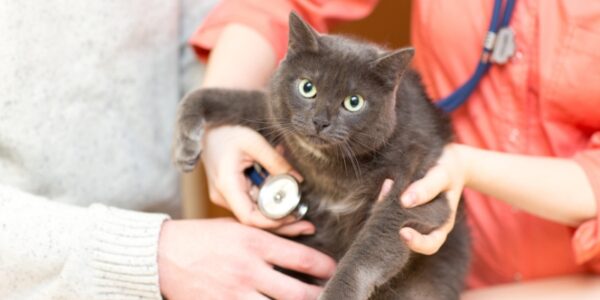Once your pet reaches seven years old, they are considered a senior and at this stage of life, we advise twice annual check-ups to ensure your pet remains happy and healthy in their old age.
We recommend increasing the regularity of check-ups at this age because health conditions tend to occur more often and develop faster in older animals. Some of the most common health issues affecting older pets include:
- Dental disease and sore teeth
- Skin tumours
- Heart disease
- Arthritis
- Abdominal problems and growths
- Skin disease
- Eye and ear problems
- High blood pressure
Blood testing
A annual blood and urine test for pets over 7 years is recommended to screen for diseases which are common in older animals but don’t often produce symptoms until the disease is well advanced and already affecting your pet’s quality of life. This type of testing can be used to identify serious health conditions including diabetes, kidney disease, tumours and liver disease.
Arthritis
Arthritis is an extremely common and painful condition for older pets. Happily, it can be effectively managed with medication and a few lifestyle adjustments. When you bring your pet in for their six-monthly check-up, the vet will check their joints to make sure everything is in good working order. Some signs to look out for at home which may indicate your pet has arthritis include a slowed walking pace, lower activity levels or stiffness.
Blood pressure
In older cats, high blood pressure is very common and is linked with several serious health conditions including kidney disease, thyroid issues and blindness. When your senior cat comes in for their check-up, the vet will perform a simple blood pressure test to ensure levels are normal. Regular testing is a non-invasive way to quickly screen for ‘silent killer’ diseases and diagnose them before they impact your pet’s quality of life.




